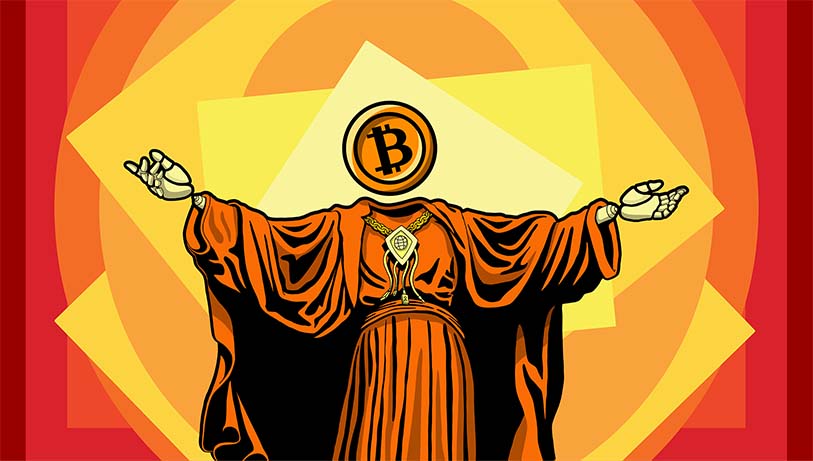It is challenging to pinpoint when secret societies initially emerged; although some believe it was in the Pythagorean school, others link it to the Solomonic temple. Regardless of where they came from, the modern world thinks it knows specifics about them. Whether they are accurate or not, these data are intriguing since they shed light on the philosophy, strength, and tactics of secret societies. Some commentators have proposed the theory that a bitcoin may create the greatest secret society ever at a time when cryptocurrencies are on the rise. They believed it would bring the Illuminati 2.0 to the fore.
Secret societies: facts or urban legends?
initiation ceremonies, a magico-religious system, the Bilderberg Group, the Illuminati, and Freemasonry are all examples of conspiracies. and countless others. Secret societies have a lot of terminology that seems to be both understood and misinterpreted by many people.
Exists a standard definition of “secret society” upon which one can rely? Without a doubt!
Definition
Originally, a secret society was a social group whose existence was hidden from the general public. Therefore, it can be connected to a group of individuals from one or more nominative companies, whose association must be free from all traces of curiosity. This is done in an effort to form a straightforward fraternity or a potent group with a financial or political agenda.
The objectives of secret organizations in Ancient Greece were very different from those in modern times. We were able to emphasize the enigmatic aspect of social existence by emphasizing a great deal of religious truths that were challenging to understand. Secret societies had political, economic, criminal, or conspiratorial goals in the past or after mutation. Some even go so far as to undermine the current state power or support it at all costs.
We must acknowledge that there have always been rumors about this type of society. In fact, whenever we discuss the matter, we frequently use the terms “satanic rites” or “secret ceremonies.” However, their origins and outward expressions differ between Europe and Africa (among the Wuli of West Cameroon, for instance).
Several codes for covert groups
Godefroy de Bouillon founded the Priory of Sion in 1099; it was abolished by Pierre Plantard in 1956. Dan Brown extensively discussed it in his incredibly well-known book “The Da Vinci Code”;
The establishment of a “New World Order” would be the goal of the Illuminati, an organization founded in the Age of Enlightenment. This group includes some contemporary figures with careers in politics and finance;
Golden Dawn, also known as the Hermetic Order of the Golden Dawn, is a form of occultism that originated in the West and is based on esotericism.
Skull and Bones is a very old organization that was started in 1832 by Yale-educated American academics. It is rumored that this organization, represented by a skull of bones, housed the CIA’s founders and would have significant influence over this organization;
Freemasonry was first established in 1717. This group’s practices are limited to discussions of society, making it the least harmful of all;
Secret societies, organizational structures, and restrictions
Although secret societies operate anonymously and don’t ignore their physical presence, they nonetheless require an organization, just like any other human group. In any case, they had to have:
- aims, objectives, and concepts;
- a manager;
- a members;
- a schedule of duties for its members to complete;
- a resource;
Secret societies are needed to keep their existence hidden from those around them as one of its distinguishing traits. Members of these organizations are required to act covertly and refrain from disclosing any information regarding their affiliation with other groups in accordance with the law of omerta, a phrase from the Italian mafia that means “silence.”
A secret society will always succeed in its objectives, whether they are honorable or dishonorable in the eyes of society. It should be mentioned that not all members of secret societies are criminals. By performing initiation ceremonies and healing rituals, for instance, those of the Wuli actively participates in reviving the regional culture.
Secret societies 1.0, however, have their own constraints. To solely cite:
Dependence on a leader: The latter occasionally performs poorly to the point of giving instructions that some members fail to understand;
Communication issues: when they happen, other issues like organizational inefficiencies or message interception by outside parties appear;
Resource constraints: without them, achieving goals becomes difficult, if not impossible;
Hence the requirement for the bitcoin secret society of the digital 2.0 era.
The fundamentals of the revolutions, which Bitcoin, the “darling of anthropology,” announces, are continually being revealed on Cointribune. Your understanding of the socio-cultural issues involved will be greatly aided by our cockfighting analogy.
Here, we’ll just suggest that bitcoin could be used as a tool to create either an open or a closed society. In essence, the Bitcoin protocol seeks to build a brand-new financial system that can successfully displace the current one. The latter is no longer viable since it promotes greed and the 1% enrichment of a very small portion of the world’s population.
In addition, the world’s wealth is decreasing to the point where everyone on Earth faces a perilous situation. Repeated inflations that never cease are not beneficial to any household’s finances. Even people from Western nations, which are typically seen as prosperous, are feeling the effects of rising food and energy prices. Wars like the one raging between Russia and Ukraine right now and pandemics like the Covid-19 affect a nation’s economy and financial stability.
It’s time to give people more options for self-defense against precarity. And it is at this point that we may celebrate the creation of bitcoin. This protocol promotes involvement, resource generation, and development.
Bitcoin will no longer be restricted to powering obscure organizations like Skull and Bones or Bilderberg because it is entering an era of democratization. The benefits it involves will be available to all businesses worldwide. To simply identify these as “bitcoiners” is to say that they are content.
Recently, we have established opinions about Diogenes, the first bitcoiner. You are aware that Satoshi Nakamoto was the one who invented the digital currency that is currently the talk of the modern world, though.
Bitcoiners follow the tenet “privatize the gains and socialize the losses” as a general rule.
A society without leaders: Bitcoiners
The necessity for leadership is no longer necessary because of the Bitcoin protocol. Even Satoshi, his father, declined to use this title since he chose to conceal his identity in 2011, two years after the creation of Bitcoin.
Bitcoin is a system for participatory government that can address the issues faced by the Byzantine generals. In essence, it brings together network members who are not need to physically see one another in order to function. a certain form of secret society that doesn’t require meetings or guidelines to succeed or reach objectives.
The benefit of bitcoin would be that it would grow in accordance with the network’s expansion. Thus, there will be no more esotericism, initiation rituals, or other forms of selective hiring. Joining the blockhain and basta is the most important thing.
Bitcoiners are happy to come together to discuss an idea. Whoever says such idea refers to intangible legacy that cannot be tarnished. Furthermore, every institution can be made to fear by its decentralization power. Yes, bitcoin has increased the number of beneficiaries by reducing the influence of centralized organizations like banks. And they are thrilled with the notion of severing all relations with reliable third parties because it is seen to be too expensive.
The ability given to bitcoiners to modify the protocol is a further issue worth mentioning. Members of the bitcoin community should logically have access to this power, not users outside of the system.
This supports what was said:
The king is more powerful than the pawn, yet it is unable to follow a move if it is surrounded. This is the community’s strength.
No one will assess a bitcoiner based on the size of its assets thanks to the integration of this group that resembles a hidden society. No matter how many bitcoins he has in his wallet, he will always take care to defend his clan, the protocol, and help democratize bitcoin.
Even politicians appear to be drawn in by the appeal of bitcoin advocacy. You are aware of the praises of American senators like Cynthia Lummis and Ted Cruz.
We shall revisit these two ideas at the conclusion of this lecture. In light of the demise of the traditional banking system, there is first this notion of secret societies that is far from being debunked. It is also important to note the magic of bitcoin, an asset that unites people who are eager for freedom and gradually introduces a new system capable of making a big contribution to humanity. Now it’s up to us to win. Would we want to submit to and put up with a system that has oppressed us for so long? Or would we jump, with bitcoin supporting us, to make place for fresh sunshine?



